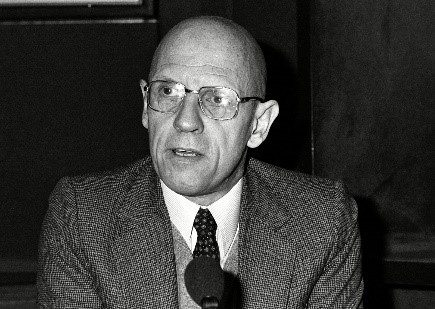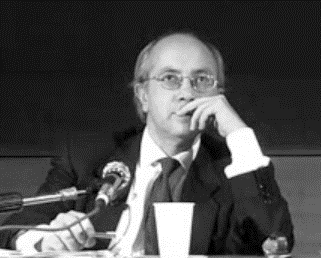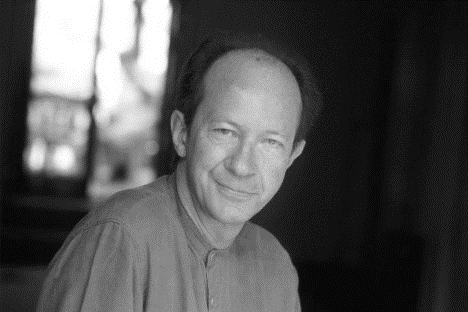[On October 8, 2019 Professor Samantha Frost (Political Science) presented a talk on Biopolitics as part of the Modern and Critical Theory Lecture Series. Below is a response by Soumya Dasgupta (Architecture)]On Foucault, Esposito, and Agamben; Professor Samantha Frost’s lecture on BiopoliticsWritten by Soumya Dasgupta, Ph.D. Student in Architecture (History and Theory), University of Illinois at Urbana-Champaign Award-winning author and Professor at the Department of Political Science, University of Illinois at Urbana-Champaign, Samantha Frost delivered an extensive lecture on Biopolitics at the Unit’s Modern Critical Lecture Series this fall. With a background in the Biological Sciences, Frost used her impeccable expertise and effective humor to critically navigate through three principal authors of the field while concluding towards possibilities of an emergent politics located close to her recent work on Biocultural Creatures (See Frost’s new book https://www.dukeupress.edu/biocultural-creatures). While the purpose of her talk was clearly to educate the audience about what Biopolitics is and how they can introduce themselves to the intricate and intertangled worlds of Foucault, Esposito, and Agamben, Frost did more than simply introducing the key concepts, as her effortless style took the multi-disciplinary listeners to a quick deep dive into the essence of the subject and its complexities. Frost mapped out three strings of thinking that can help readers engage with the texts on Biopolitics. She introduced the subject as a domain of inquiry on how living bodies of the population are mobilized for political processes both as targets and means. As a field within Critical Theory, Biopolitics critically studies these modes of mobilizations and helps unfold the entanglements of life and power and the ways in which politics and power shape life. With three simple diagrams, Frost sketched out the bare skeletons of approaches that Foucault, Esposito, and Agamben took towards such inquiries. She illustrated Foucault’s reflections on Biopower as a blob within which the population is governed (managed) through an exercise of sovereign and disciplinary forces. Foucault has an affective undertone in this proposition, as Frost comments, that it is like a slog, the incredible task of managing a population. What is important to note here is the merging of the sovereign and the disciplinary for the purposes of such governance (management) to be understood in relation to the development of the statistical methods, technological innovations and tactics employed for tracking population, deployment of institutionalized demographics and security leading to the dynamics and problematics of eugenic and dysgenic drives in society. The core argument that describes the relationship between the body politic and biopower is perhaps best captured in Foucault’s comment on the development of the European State from the Medieval era –
“To govern, then, means to govern things.”
– p. 210, “Governmentality”, Foucault, Power (essential works)
Esposito’s approach, according to Frost, operates in an ontological register. She explained that in Esposito’s text, body politics is treated as a process of the community (InLatin - communitas and immunitas), which necessitates exclusion of various people from it: the phrase ‘fearful abjection’ to depicts the affective tone of this theoretical model. Esposito’s account, thus, helps unfold the idea of politics as something that life does to itself: it is through the community that regimes mobilize biopower. Throughout her lecture, Frost put the most emphasis on Agamben’s model, which is pivoted on the criteria of law and people being subject to the law. Agamben, according to Frost is most interested in ways in which a suspension of the law occurs. Emphasizing giddiness as the affective tone of Agamben’s model, Frost spelled out the crucial differences of this approach from the earlier two authors. While for Foucault, the primary argument is around the merging of sovereign power and disciplinary power to yield biopower through surveillance technologies, Esposito’s perspective renders politics as a process that gives the analytics of communitas (we share therefore we relate, and vice versa) and immunitas (suspension of debt or gift, e.g. diplomatic immunity). However, as Frost pointed out, Agamben is critically different, as for him the discussions on Biopolitics chiefly revolves around the idea of banishment. 
Figure 1 Board work by Prof. Frost, Unit MCT Lecture October 8, 2019; picture by author
How then does Agamben examine this suspension of law and the idea of banning? As Frost deliberates on this inquiry, she clarified Agamben’s understandings of life-forms following the principle of exclusionary inclusion or where the inside is always defined by the outside. For Agamben, life-forms within a society essentially manifest into two typologies – Zoe (animal life) and Bios (politically formed life). But, as the resultant of exclusion, banishment or abandonment, one can see the category of what Agamben calls Homo Sacer or bare life. It is this conditionality of sovereign exception that allows for life to be killed without that death constituting murder, in the legal sense. This legal distinction between killing and murder forms a key crux in Agamben’s work. Further, Frost explains that in this Agambenian framework, the notion of Homo Sacer, and thus in the larger context Biopolitics, necessarily have a spatial dimension, specifically that of territoriality. The action of banishment or abandonment unfolds in space and the exception of the sovereign as a realm operates with an idea of an enclosed space. As frost explains, , groups of people can then become Homo Sacer, such as Jews or Romani or African-Americans as they get placed within special jurisdictional spaces in the zones of sovereign exceptions, which Agamben calls ‘camps’ or spaces where laws are suspended. Towards the end of her lecture, Frost traced through other major works of Agamben, drawing insights on topics such as how the moment of death is determined by the sovereign force with the advancement of technologies, how Agamben provided a rather ambiguous viewpoint in 2016 where he basically questioned the premise of his earlier work while relating its roots to misreading of Aristotle, and form-of-life which reflects upon how life is already informed by politics. By delivering this intense, fast-paced and densely packed lecture, Professor Frost then introduced the premise of her own work on bio-humanities while provoking the audience with possibilities of different modes of politics of power. Frost’s lecture generated a huge range of questions, perhaps the most so far in the lectures delivered this fall. This not only shows the relevance of Biopolitics as a mode of critical inquiry to the university-wide scholars and students but also the effectiveness with which the lecturer has made the subject accessible to them. One of the many interesting questions were around the pressing issue of climate change, and particularly around 16-year-old activist Greta Thunberg and how one can relate the politics associated with it to the process of exclusion. Frost argued that it would be a blunder to not align with the scientific community regarding climate change while also adding how white supremacy as a political viewpoint is connected at an abstract level with a certain orientation towards the world which denies climate change and its ill effects. However, on another question regarding the broader perspective towards “science” as a knowledge system being problematized within the discourse of Biopolitics, Professor Frost expressed her own struggle with the Foucauldian paradigm where all knowledge is historically specific and critically subjected to certain genealogies. Overall, Frost’s lecture was delivered in a style that was clear, effective, and legible to a multi-disciplinary audience, thus making critical theory open and accessible. She dealt with the complex and demanding subject of Biopolitics with incredible efficacy and showed how this mode of critical inquiry can reveal extensive insight into how our world works today. Using Foucault, Esposito, and Agamben’s critiques, Professor Frost depicted an uncomplicated picture of this complicated field of thinking.



From left - Foucault, Esposito, and Agamben